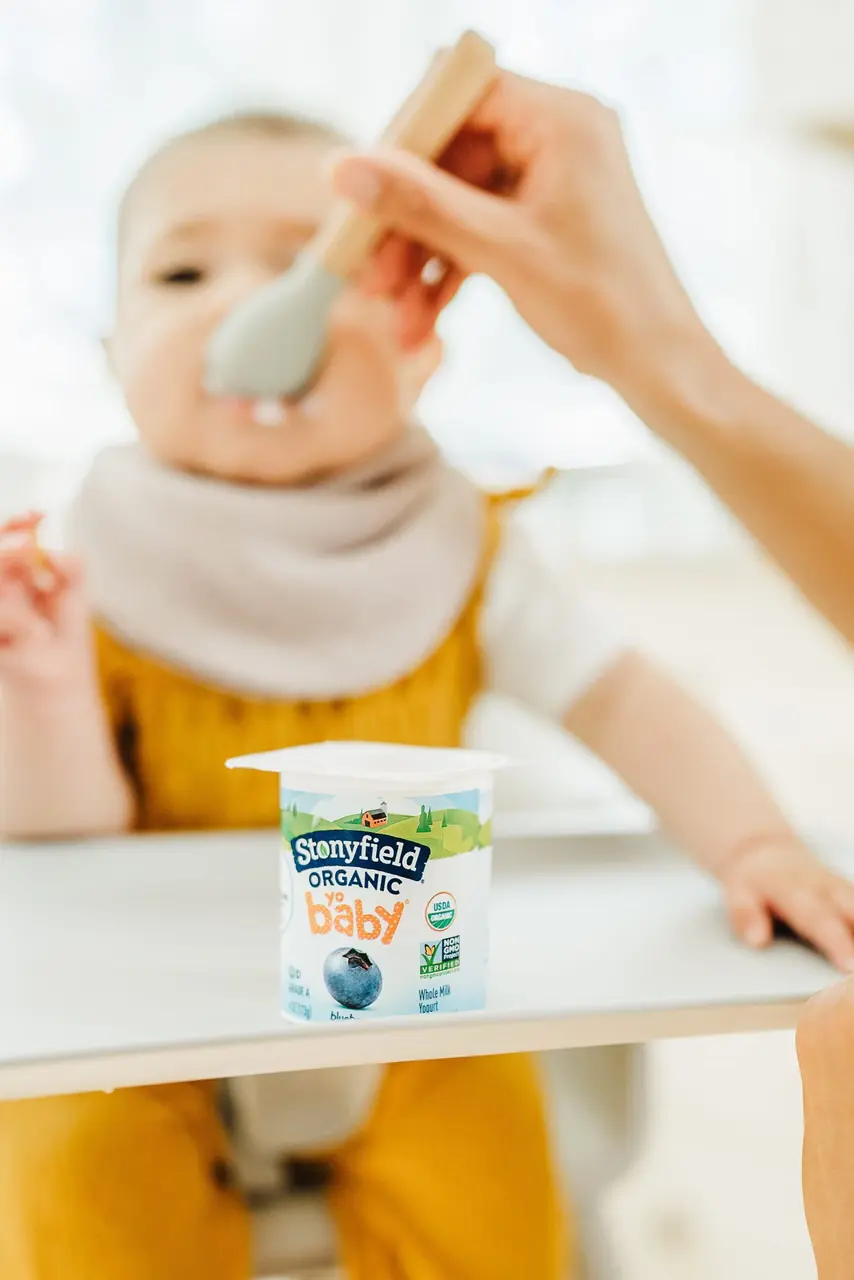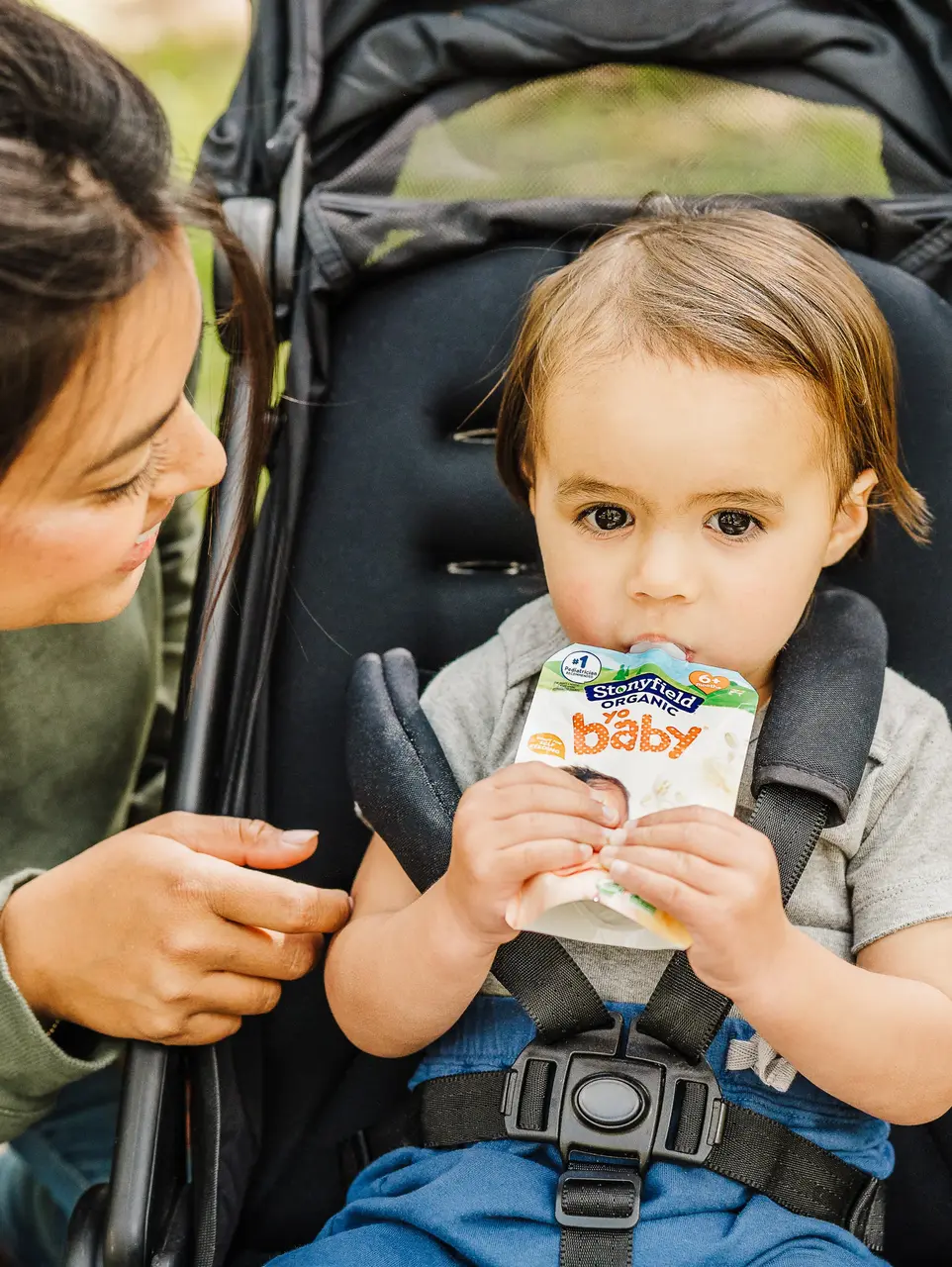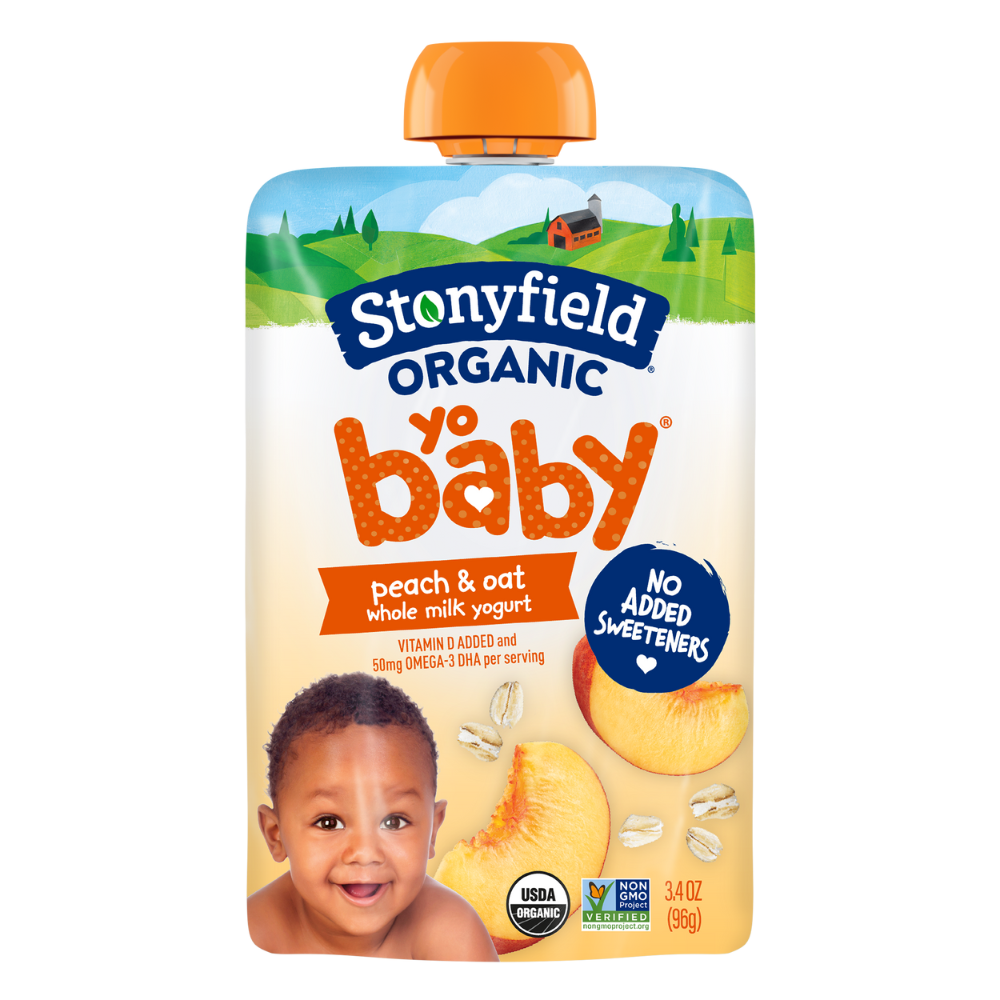Baby feeding tips for parents

Why Your Baby Needs Yogurt In Their Diet
Yogurt is a great food option for babies who are six months and older* because of its nutritional value. It contains protein (which supports metabolism), calcium (which is good for healthy teeth and bones), and potassium.
There are also some types of yogurts that contain probiotics. Stonyfield Organic YoBaby yogurt Apple & Blueberry cups and YoBaby yogurt Vanilla cups nourish your baby with probiotic BB-12®, which has been shown to have a digestive health benefit when consumed regularly as part of a balanced diet and healthy lifestyle. (BB-12® is a registered trademark of Chr. Hansen.)”
*Greer, Frank R., Nancy F. Krebs, and Committee on Nutrition. “Optimizing Bone Health and Calcium Intakes of Infants, Children, and Adolescents.” Pediatrics (2006) 117 (2): 578-585. https://doi.org/10.1542/peds.2005-2822.

When Can Babies Eat Yogurt?
Pediatricians approve introducing yogurt starting at six months. If there’s a family history of cow’s milk allergy, work with your pediatrician to introduce yogurt after your baby has had other first foods (such as cereal and veggies) and tolerated them well. As with all first foods, you should also wait 3-5 days between trying new ones so you can identify any possible reactions. It’s natural to have concerns about allergies, so talk to your pediatrician before starting new foods—and give your baby new foods at home, rather than at daycare or a restaurant, for instance.

Why Whole Milk Is Important For Babies
If your child is between 1-2 years old, it’s the prime time to push whole milk. There are several delicious benefits, including Calcium and Vitamin D, Dietary Fats, and Protein. Children between 1-3 years old need 700 milligrams of calcium per day. If they get that all from whole milk, that’s 2.5 cups!

Why Organic Is Good for Your Baby
Stonyfield YoBaby organic yogurts are made especially for babies! Made with only organic whole milk and the high-quality ingredients you would use yourself, YoBaby yogurt is always made without the use of artificial hormones, toxic persistent pesticides, and genetically modified organisms (GMOs). And, best of all, it’s ALWAYS organic.

Want free tips for feeding your baby?
Sign up for our email newsletter and receive free resources, tips and tricks, and coupons.


